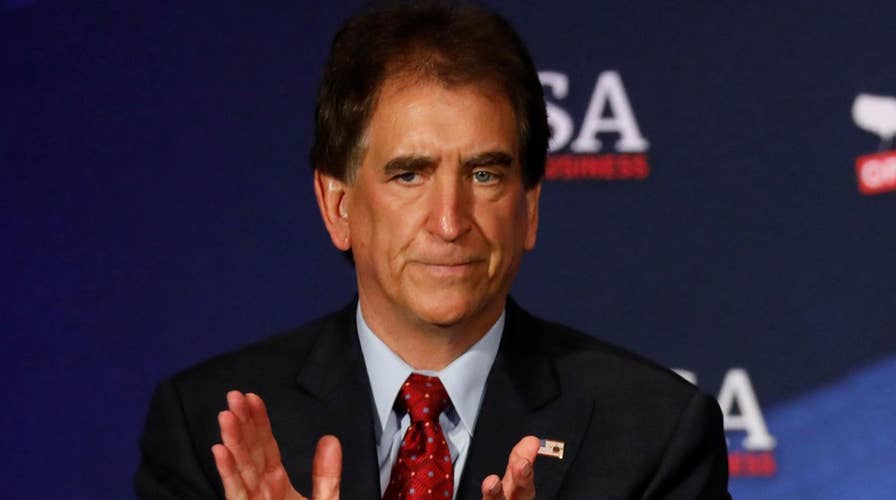Rep. Jim Renacci wins Ohio Senate GOP primary
Ohio Congressman Jim Renacci, who was endorsed by President Trump, defeats businessman Mike Gibbons in the Buckeye State's Republican Senate Primary.
Tuesday’s Republican and Democratic primaries in West Virginia, Indiana, Ohio and North Carolina provided some clues about what to expect in the upcoming November midterm elections – including warning signs for Democrats.
In West Virginia, Attorney General Patrick Morrisey emerged as the Republican senatorial nominee in a contentious primary marked by the unusual candidacy of the controversial former coal executive Don Blankenship. Blankenship was convicted and sent to prison for a year for his role in a coal mine explosion that killed 29 workers in 2010.
The surprising popularity of Blankenship in pre-election polling – despite his loss Tuesday – demonstrated the continued appeal of anti-establishment candidates nationwide. Blankenship consistently and harshly attacked his own party's leader in the Senate, Mitch McConnell of Kentucky, and very recently used derogatory language that some characterized as racist.
Even President Trump urged voters not to cast ballots for Blankenship, despite the candidate's suggestion that he is “Trumpier than Trump.”
A Democratic Party campaigning simply on the premise of “resistance” to President Trump and the Republicans is not enough to maximize gains in this election and beyond.
In Indiana, meanwhile, three Republicans competed to face incumbent Democratic Sen. Joe Donnelly, with Mike Braun emerging as the winner. The robust Republican primary may signal trouble for Donnelly and the Democrats in November, as President Trump carried the state by 19 points in 2016.
In terms of the results in Ohio, it appears the Republicans will most likely be able to also retain GOP Gov. John Kasich’s seat.
The apparent winner of the Republican nomination for governor in Ohio, Mike DeWine, is a former U.S. senator and current state attorney general. He already beat the 2018 Democratic candidate for governor Richard Cordray – the former head of the U.S. Consumer Financial Protection Bureau – in the race for attorney general in 2010 and will likely be able to do so again for governor in November.
Further, Republican U.S. Rep. Jim Renacci's victory in the race for the GOP U.S. Senate nomination in Ohio poses a serious challenge to Democratic incumbent Sen. Sherrod Brown.
There are, however, some promising takeaways from Tuesday's primaries that may provide a guidebook for the Democrats.
For instance, there continues to be a fresh crop of exciting new Democratic candidates, such as Dan McCready, a 34-year-old Marine veteran and solar energy entrepreneur running for Congress in North Carolina’s Ninth District. He has drawn comparisons to some of the most promising and compelling young Democrats in Congress like Seth Moulton of Massachusetts and Conor Lamb of Pennsylvania.
For the Democrats to capitalize on broad disapproval of President Trump, they must support candidates like McCready and help produce a new generation of Democratic leaders with new ideas and effective policy alternatives to the Republicans, rather than relying on the same leaders who have served for as many as four decades.
Simply put, a Democratic Party campaigning simply on the premise of “resistance” to President Trump and the Republicans is not enough to maximize gains in this election and beyond.
Instead, the Democrats need to focus on fresh faces and fresh ideas. They must present effective proposals for inclusive economic growth, showing voters nationwide how voting Democratic will benefit them, their states and our nation. And they must shake off the ghosts of 2016, handing the gavel to new voices in the party.
If the Democrats are able to accomplish this, they stand a good chance of making significant gains in November. But if not, dreams of a blue wave returning control of the U.S. House and Senate and more governorships to Democratic hands may be nothing more than wishful thinking.





















